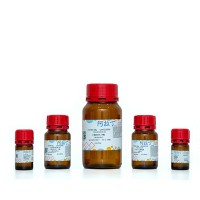Signal Transduction and Neurotoxicity: What Can We Learn from Experimental Culture Systems
互联网
互联网
相关产品推荐

Recombinant-Rat-Epithelial-cell-adhesion-moleculeEpcamEpithelial cell adhesion molecule; Ep-CAM Alternative name(s): Epithelial glycoprotein 314; EGP314 Protein D5.7A Tumor-associated calcium signal transducer 1 CD_antigen= CD326
¥11382

Albumin hydrolysate,for microbiological culture, from chicken egg white,阿拉丁
¥5716.90

消泡剂 SE-15,aqueous emulsion for bacterial and mammalian systems,阿拉丁
¥199.90

Recombinant-Mycoplasma-gallisepticum-Lipoprotein-signal-peptidaselspALipoprotein signal peptidase EC= 3.4.23.36 Alternative name(s): Prolipoprotein signal peptidase Signal peptidase II; SPase II
¥11480

Recombinant-Mycoplasma-penetrans-Lipoprotein-signal-peptidaselspALipoprotein signal peptidase EC= 3.4.23.36 Alternative name(s): Prolipoprotein signal peptidase Signal peptidase II; SPase II
¥10920

